We recently connected with Khavah Murray and have shared our conversation below.
Alright, Khavah thanks for taking the time to share your stories and insights with us today. Setting up an independent practice is a daunting endeavor. Can you talk to us about what it was like for you – what were some of the main steps, challenges, etc.
Sure! Making the decision to start my private practice was both scary and exciting. I had been doing some contractual work in clinical supervision before I made the decision and this seemed like the natural next step. When I was doing this consulting work I realized the need for clinical supervision, for agencies and individuals, as well as the need for black/brown women therapists in my area. I had transitioned out of therapy when I became a dual department head at my daytime job.
Initially I was overwhelmed. I knew I needed a name, logo, business structure and connections that represented me and my work. I took all of the typical legal steps needed to start a business, registering with the state, getting an EIN and so on. My friend group helped me develop my first logo, write my bio’s, figure out my fees and the electronic health record I was using had a free website that came with my regular. The support from my circle was what I needed to get started, in a business and personal sense. After a few months in business, I connected with a small business incubator for help with a business plan, marketing strategy, new website and logo, financial planning and legal assistance. Working with the incubator, put everything into perspective for me, like “I really have a business and it’s being recognized by other professionals!”
Some of the challenges I didn’t expect came with my fees and making them affordable. I wanted my services to not only be affordable but also accessible for the folks looking for therapy. So, I decided to start the process to be able to accept insurance and employee assistance (EAP) benefits. I hired a credentialing and billing company to get me started, and they still keep me on track. I quickly became a student of the world of insurance benefits and all the caveats that come with being able to receive payments. Now that I have that knowledge, I make sure my clients fully understand their health plans before we schedule and I work with individuals whose insurances I don’t accept and connect them with non-profits whose missions are to increase access to mental health treatment by covering the cost.
Knowing what I know now, I wouldn’t do anything differently because I’ve learned from the process, journey and my mistakes. I appreciate the knowledge more because of the experience.
The advice I would give to young professionals interested in starting a private mental health practice is to get a mentor, utilize all the free small business resources available to you, don’t be afraid to consult with other business owners who are where you want to be and be okay with the occasional disappointment- it’s all a learning experience. And most importantly, be yourself!
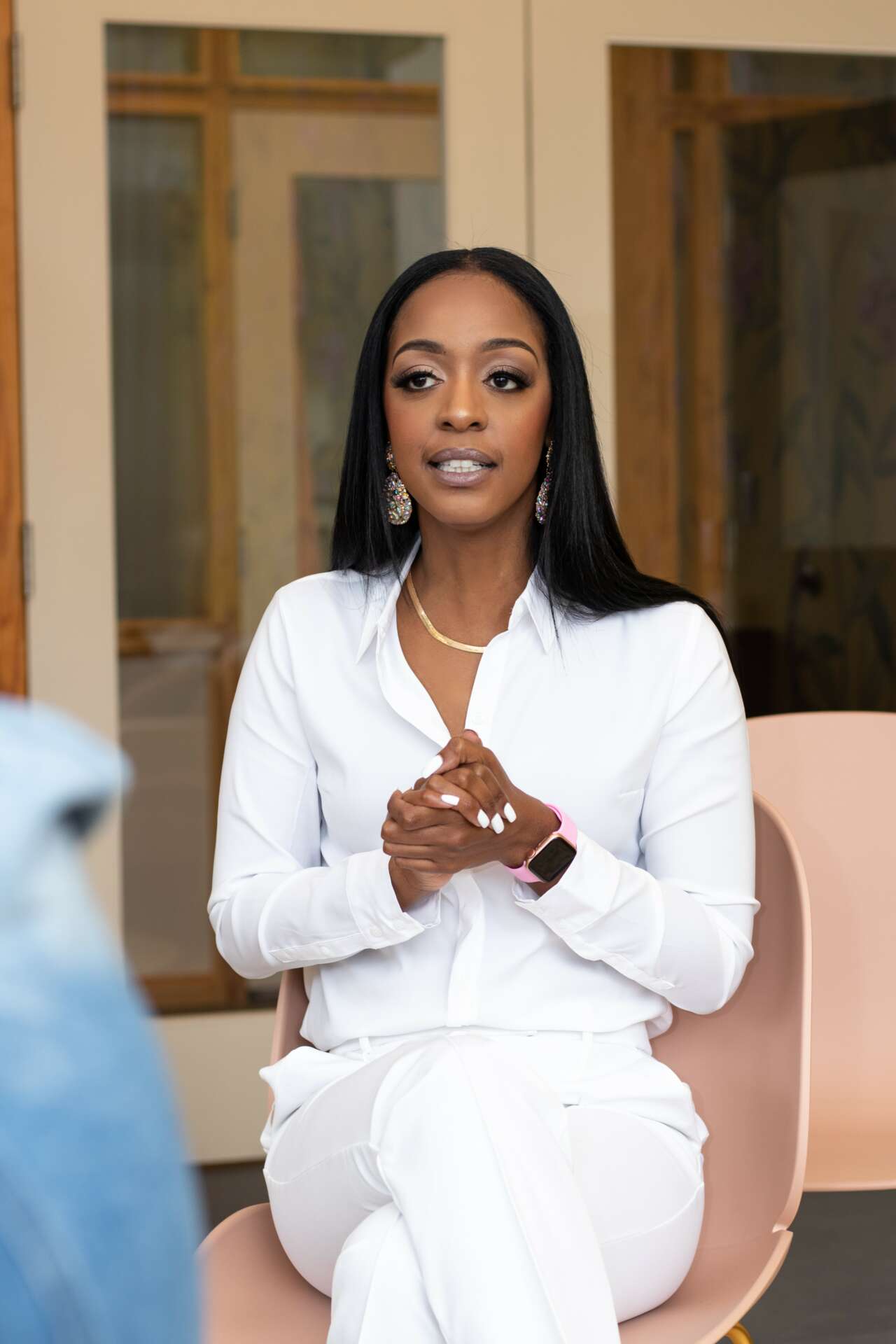

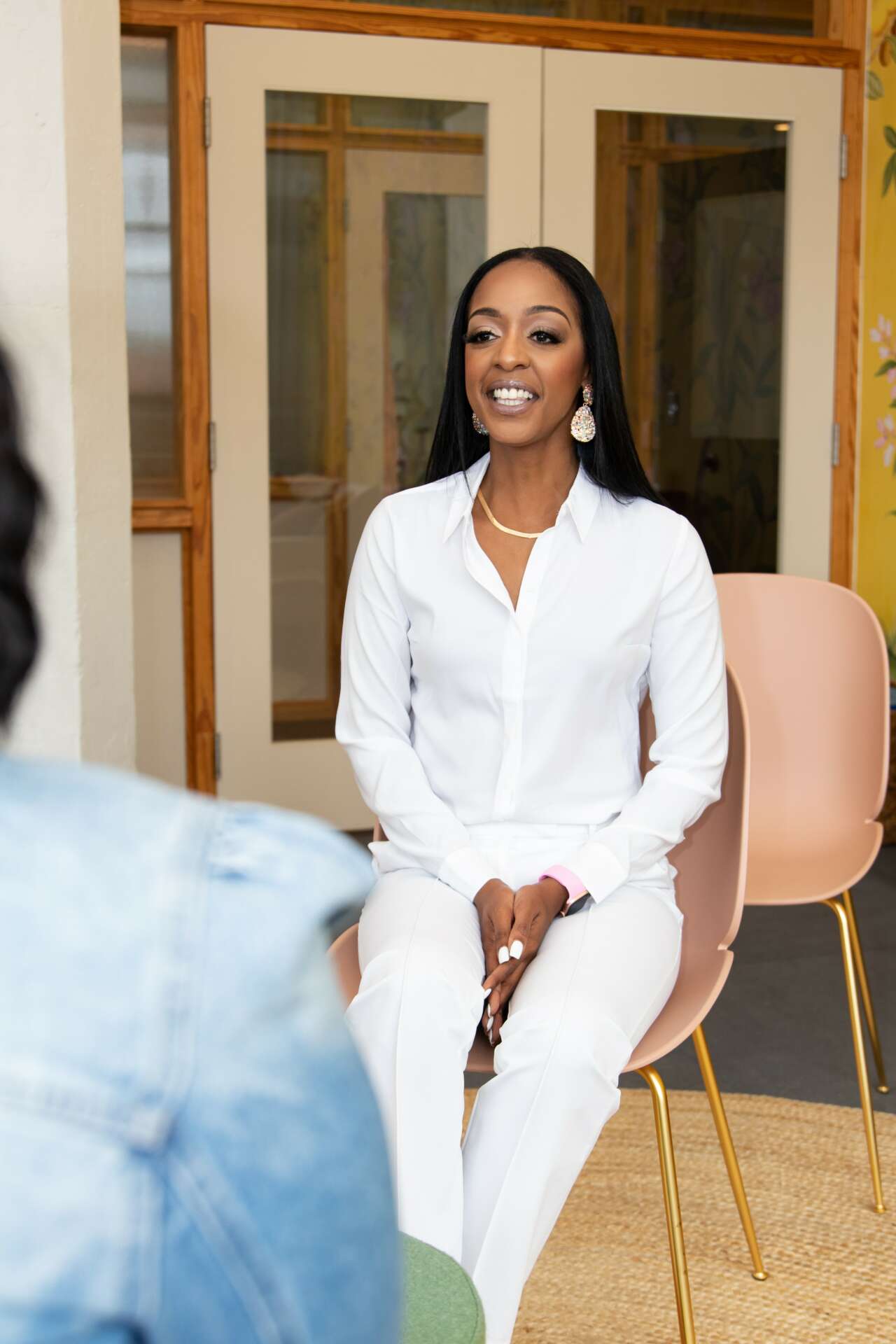
Awesome – so before we get into the rest of our questions, can you briefly introduce yourself to our readers.
I am a Licensed Clinical Social Worker in Pennsylvania with extensive experience in Social Work for the last 15 years. My career has included providing both social and clinical services in communities, schools, and in homes. I have worked on projects and teams addressing affordable housing, offering community-based crisis response and treatment, and consultation on behavioral interventions in schools. In addition to my practice I also have a full time job at a Federal Qualified Health Center as their Director of Social Services and first Director of Behavioral Health. This work is important to me because we are offering medical, dental and behavioral health care to individuals and families that are insured, underinsured or uninsured and will provide them with quality care regardless of their ability to pay. Our network consists of 9 community health centers that are strategically placed in communities that need our services.
Knowing what I know now, I feel like I was always meant to be a Social Worker. In undergrad I wanted to be an engineer and was encouraged to go into Health & Human Development at Penn State University based on an aptitude test. Prior to going to graduate school, I had applied for a nursing program and was encouraged to reapply the nursing program the same day I was accepted into the University of Pittsburgh’s School of Social Work. While in graduate school, my education track was not mental health, I had a strong passion for child welfare that stemmed from my undergraduate studies. I was in awe of how early childhood experiences, especially for black and brown children, could lead to certain health, lifestyle and legal outcomes when they became adults. I was convinced I would work for my county’s child protective services and help families break stigmas. But, my journey led to internships, and eventually a career working as a therapist. As a young therapist, I worked in communities and with families that my coworkers wouldn’t, and I felt good about the work I did. I had to realize that my journey was not my own and that my purpose was bigger than me. Looking back, I am in love with how my career as a social worker and therapist has unfolded.
What sets me apart from other therapists is that I look at the whole person and their experiences, specifically cultural and trauma-focused, that they bring with them to therapy. I am honest with my clients about what I can and cannot do for them clinically and I don’t rely on labels to guide my treatment process. Everyone is unique and therapy is not a one size fits all situation. I make sure that my clients feel good about themselves while they are with me and strive to cultivate safe spaces for them to feel free to explore new ways of experiencing healing.
My business name came from a former client joking with me years ago calling me their “Hope Dealer”. We joked about it in their sessions but they told me that no matter how bad their situation seemed or felt, I always gave them hope, never judged them and encouraged them to try and expect better. When I was thinking of business names Hope Deals seemed like a perfect fit for me and the message I wanted to convey. Everyone coming to therapy is holding onto “Hope” that they will feel better and live and healthier, happier life. The “Deal” is their goals and work they are willing to do to achieve the healing they are seeking.
In my practice I specialize in treating trauma, grief, anxiety, depression and childhood behavioral disorders such as ADHD and Autism Spectrum Disorders. During the COVID-19 pandemic, I decided to become certified in trauma as a Certified Clinical Trauma Professional (CCTP), and in grief as a Certified Grief Informed Professional (CGP). I wanted to ensure I was equipped with the tools to service my clients on the two things that plagued us as society for the last 3 years. The pandemic itself was a trauma we all felt and as a society; we not only grieved the loss of loved ones, but also our sense of normalcy, independence, employment and social connections to name a few. Currently, I work with children, individuals, families, and couples. Additionally, I offer relationship counseling to co-parents, friends or other social connections seeking to improve the quality of their relationship, enhance their communication and strengthen bonds. My approach to therapy is an eclectic mix of cognitive behavioral, solution focused, person centered, trauma and grief informed, culturally humble practices and interventions.
In regards to consultation services I offer clinical and licensure supervision for counselors, social workers and organizations looking to take their clinical practice to that next level. I also offer workshops, trainings and do speaking engagements on the topics of trauma, maternal mental health, self-care and grief.
The main thing I’d like potential clients and followers to know is that my practice is a safe space!
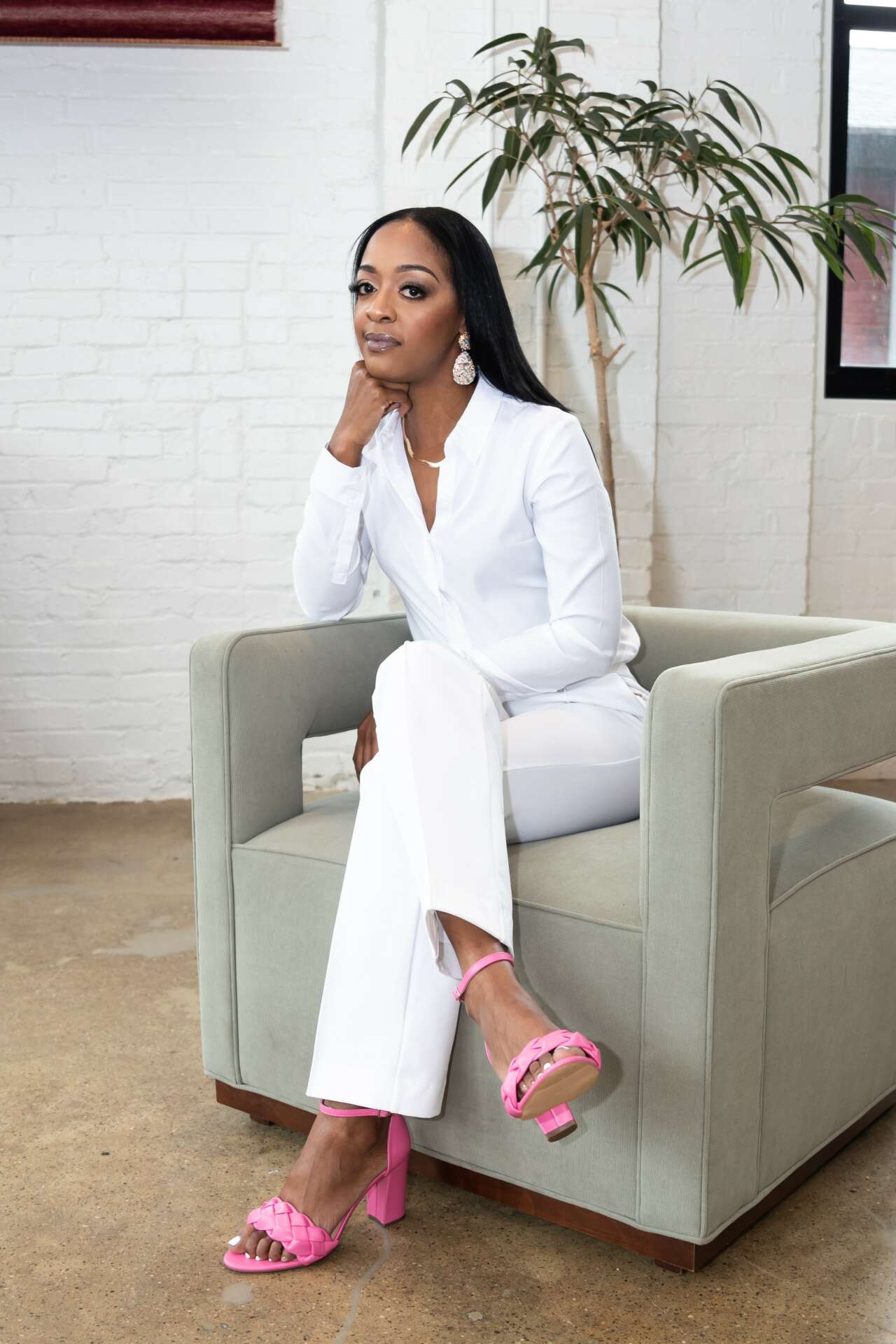
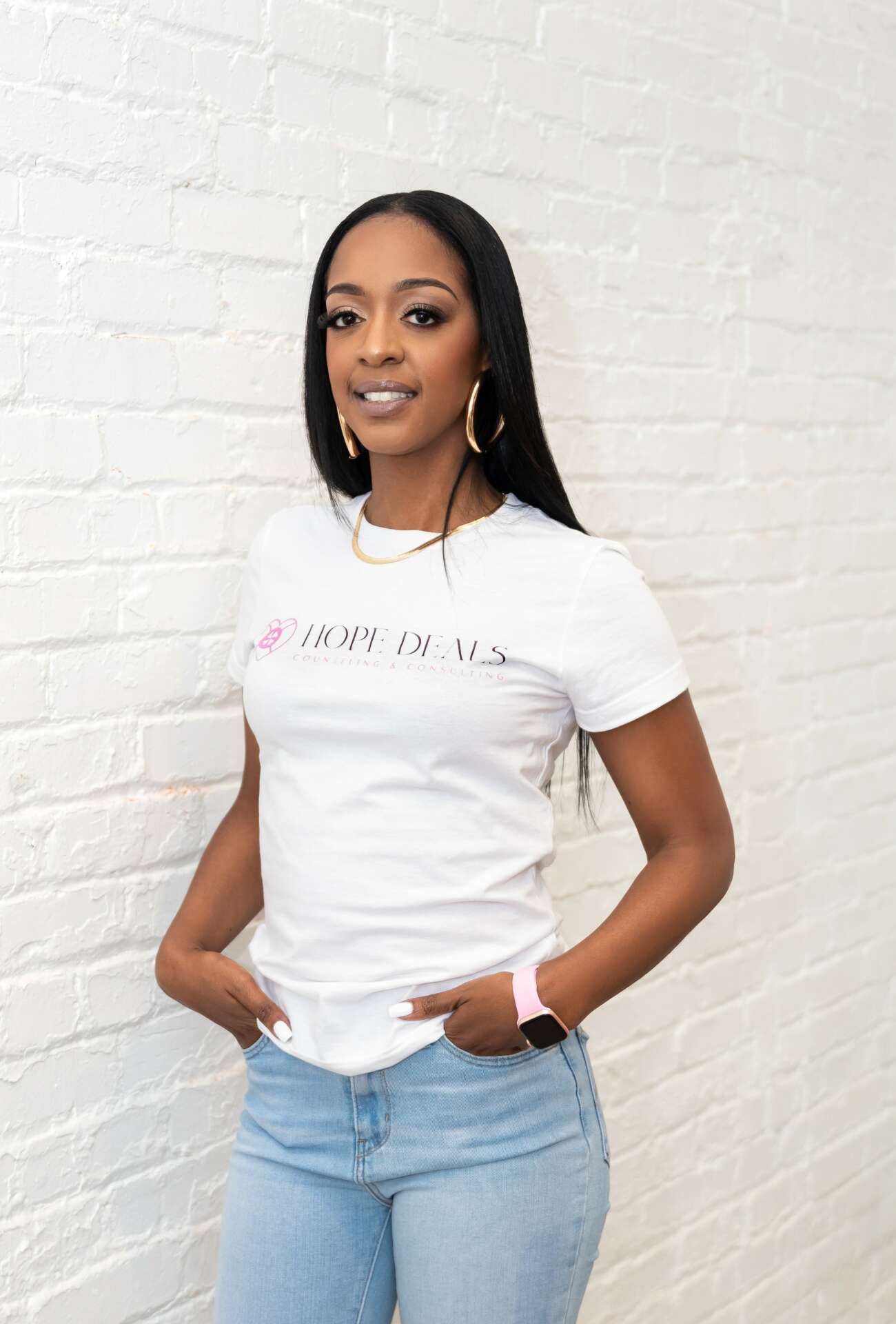
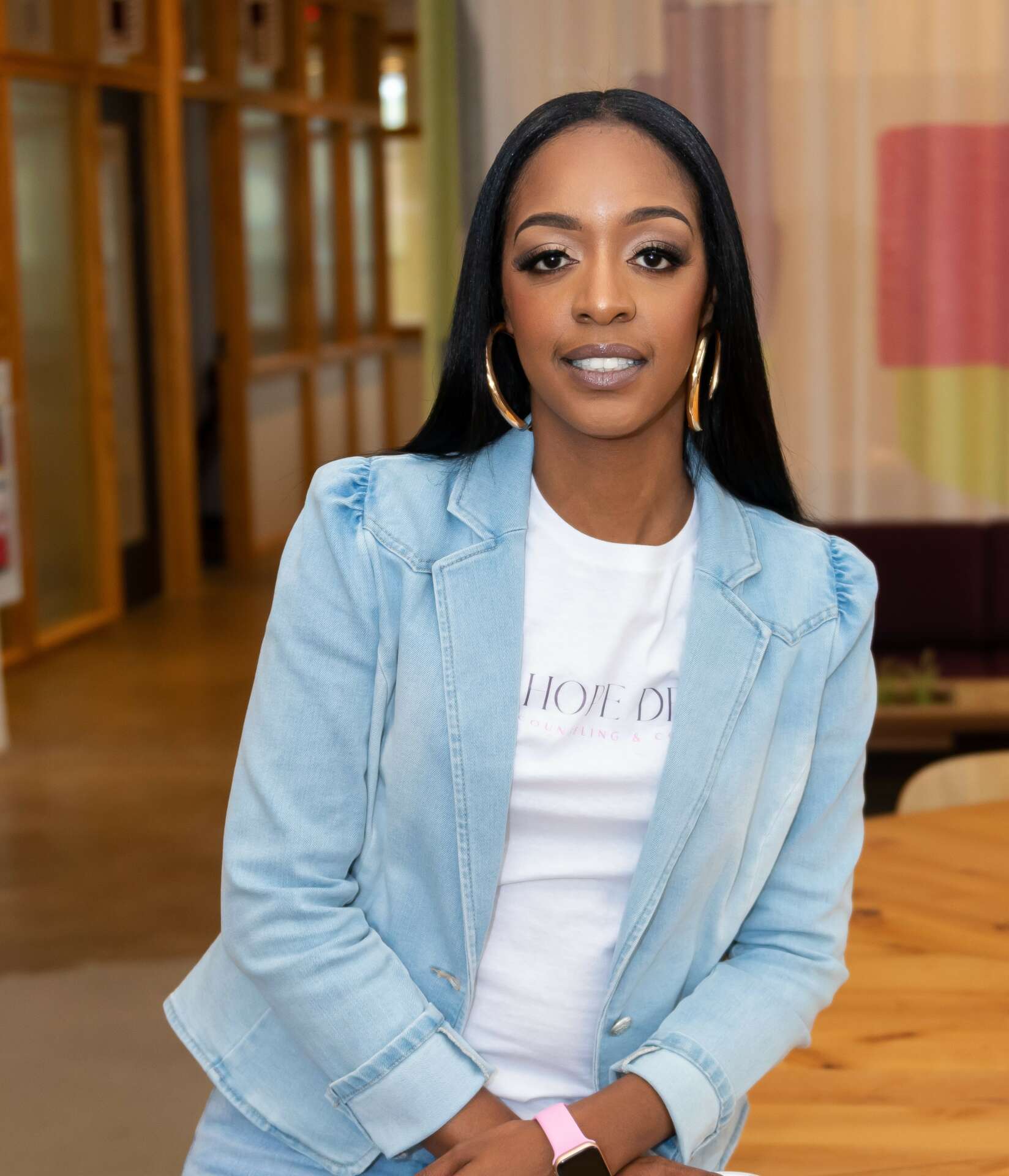
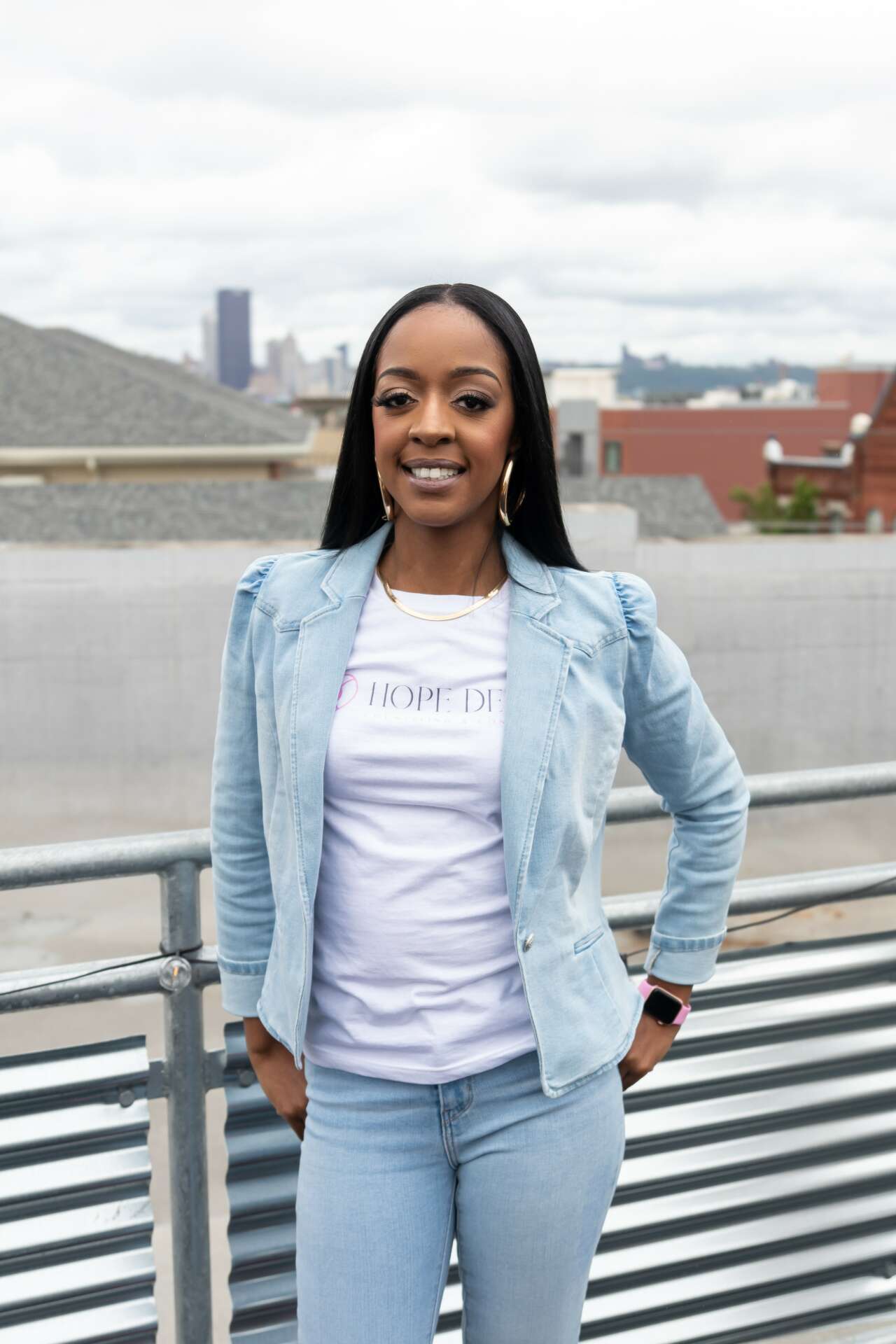
Can you share a story from your journey that illustrates your resilience?
I registered my business August 3, 2021 and while going through the motions of getting my practice off the ground my Dad passed August 30, 2021. I was overcome with grief, naturally, but my grieving process was different because my Dad passed while he was on an extended vacation in Ghana. I assisted with arrangements for my Dad’s funeral virtually and felt the weight of being his oldest child. I watched his service on Zoom with my family and close family friends. I was supported and loved through this process, but it was difficult. I still wanted to launch my business and be present for my daytime job. Being a therapist doesn’t make you exempt from grief, sadness or anger. I needed to find a way to cope that made sense for me. When I decided to rebrand my logo I searched the internet for symbols of Hope. The search produced images of flowers, birds and people holding hands; they were cool, but just not for me. One day I got the idea to search for the words “Ghana” and “Hope” together and came across Ghanian Andinkra symbols. While going through the symbols I came across one in particular that was kind of shaped like a heart, which is also my favorite shape, called ONYANKOPON ADOM NTI BIRIBIARA BEYE YIE and is the symbol of hope, faith and providence and means with God’s grace all will be well. After reading the meaning, I knew this was the way I could pay homage to Dad’s memory through the work I was doing with my business. It was also a way for me to express what I was feeling while grieving and learning how to live a life without him. My rebranding was a point of growth for me as a business owner and a turning point for me as a grieving daughter that still misses her Dad. Don’t get me wrong, I loved my original logo, but my current logo is personal for me and symbolic of my journey with grief.
What’s been the most effective strategy for growing your clientele?
What’s worked for me and building my clientele has been maintaining my authenticity and having people around me that believe in me and the work I am doing. I also use therapist directories that allow me to connect with potential clients. When I talk to new or potential clients I also ask them how and where they heard about me or found my information. Some responses are word of mouth, a google search, social media, therapist directories and from current or previous clients. I track this data and use it to inform how and where I market my practice. On the directories I make sure the content is reflective of me, the work I do and what issues I am competent to treat. Many new or potential clients tell me that they love the “vibe” they get from my website and that I look relatable and personable in photos. I make note of all the feedback and keep it in mind as I plan for photo shoots, update my bios and create content on social media.
Contact Info:
- Website: www.hopedeals.net
- Instagram: @hopedealspgh
- Facebook: https://www.facebook.com/HopeDealsPGH
- Linkedin: https://www.linkedin.com/in/khavah-murray-lcsw-cctp-cgp-71591567/
- Other: https://www.psychologytoday.com/us/therapists/hope-deals-counseling-consulting-pittsburgh-pa/807931 https://providers.therapyforblackgirls.com/listing/hope-deals-counseling-consulting/


